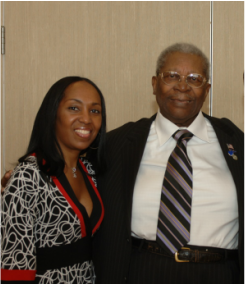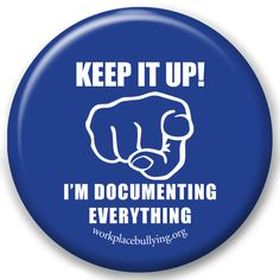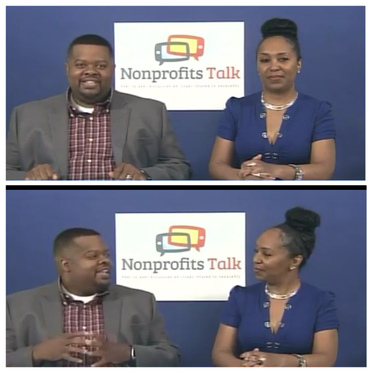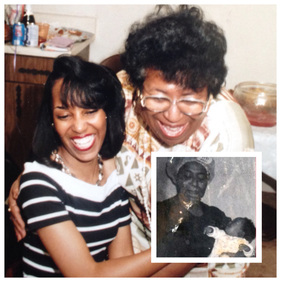 Our first time meeting during a 2007 luncheon in Chicago.
Our first time meeting during a 2007 luncheon in Chicago. We should give our elders and those who have paved the way for us their flowers while they can see and smell them. Legend was a section in Ebony where our icons could be celebrated, because it was on their backs and shoulders that others are now able to stand. B.B. surely taught the world about music, but what he wanted most was to illustrate the model of a gentleman through his actions and appearance.
He made it no secret how much he longed to see more of his own race support him at concerts. Being Black and playing the blues, he told me, felt like having two strikes already against you. All he ever hoped to do was relieve people of their worries through his music. Have you ever met a person, anybody, who did not experience trouble? This means that person had the blues, and B.B. said that as long as we had troubles, he was going to keep singing the blues. Trials and tribulations were no stranger to the Mississippi native. His burden began at the tender age of 9 years old when his mother suddenly died. An only child, little Riley was left to live alone and work for the Whites who employed his mother. Before going to school each morning, he recalled having to milk 10 cows. Then he had to walk 5 miles to and from the schoolhouse. When he returned home, the cows had to be milked once more. The grueling cycle was continuously repeated. He told me his father did not find him until he was 14 years old, but still B.B. somehow saw the silver lining. “I’ve been pretty lucky,” he said with a smile.
My fortune has been decent as well. Lots of women can claim to have stopped traffic with their arresting looks, but few can boast bragging rights about having an iconic musician delay a sold-out concert because of their mere presence. I heard the music start downstairs in the House of Blues when someone from his camp told him it was time to go on stage. B.B. paused during our conversation, stretched out his left arm and waved his chubby hand, saying in a deep voice, “Stretch it!” I chuckled. A packed house was waiting and he took a few more minutes to enjoy the conversation. The man came back and once again B.B. used the same gesture and told him, “Stretch it!” Before the man could return for a third time, B.B. let me know that he could not keep his audience waiting any longer.
The King of the Blues hit the stage in style. Noted for wearing tuxedos or a three-piece suit, his signature style was his own. He sought to be portrayed as a gentleman, which is why he hit the stage in a tux and had everyone in his band dress in similar fashion. When we talked that night, I noticed he was wearing a coat. I asked him why. He told me that sometimes he would go on stage with his coat. Before sitting down to play, he would remove it. After his performance ended, someone would bring him his coat and hat to put on before exiting the stage. “This shows the audience that a gentleman did his job and is about to leave the building,” B.B. explained. It was the cutest thing to see. I guess James Brown leaned more toward the dramatic with a cape and I saw B.B kept it simple with a coat. It was touching to see him stand from his chair at the end of his show, open his arms wide and bask in the cheers, whistles, claps and screams that honored his God-given talent.
Blues singers, he felt, got a bad rap. B.B. told me how he wanted to dispel the myth that all of them drink and smoke marijuana. He told me he believed his greatest legacy was how he never got into trouble. He did point out that he saw the inside of a jail once and that was for speeding. Another time included when he recorded the 1971 album Live in Cook County Jail. Staying out of trouble was what he hoped young people would learn from him more than anything else.
James Brown was well known as the hardest working man in show business but B.B., who performed in more than 57 countries, gave him a good run for the money as a close second. During B.B.’s heyday, he would play 364 one-night dates. There was a time when his tour schedule was even more aggressive than that when he played 500 shows in 300 cities! The former tractor driver, who had a private, customized tour bus with a television and telephone during the ’60s when others didn’t, used to sometimes drive it himself. After being involved in several accidents with one nearly costing him his right arm, he stopped traveling at night.
It never took him long to learn a lesson because education was important. He read books like Dr. John Hope Franklin’s From Slavery to Freedom and J.A. Rogers’ World’s Great Men of Color. He even became a licensed pilot and told me he had a special place in his heart for Chicago because in 1963 he did his first solo flight across the lake from Chicago Hammond Airport to Joliet. Speaking of education, I recently saw something on social media, questioning the purpose of honorary doctorates. The validity of the honors seemed to really come under attack after one was bestowed upon Grammy Award-winning rapper Kanye West. Ironically, when I spoke to B.B. and I asked about his greatest achievements, he brought up concerns about honorary degrees. Though he was honored by schools as far reaching as Tougaloo College (where he was handed his first) to Yale University, the humble musician told me he “felt ashamed, as if I’m cheating,” for getting the awards. He shared how he was pleased with the recognition but revealed that he only went to the 10th grade. He said here he comes in for one day, a college honors him and he leaves. Students, he said, spent time, money and effort just to earn what he was given.
Everything B.B. was presented, he rightfully earned but didn’t always see it that way. He saw himself as an ordinary guy who could play the guitar a little bit. On the surface, he seemed to have it all, but the lack of support from his own race and not having someone special in his life, seemed to weigh on him a tad bit. He made the most of it as always. He savored every moment he got to spend around a woman and had no shame in his game. Then 84 years young when I saw him, he laid it on the table and told me women were his vice. He thought we were the greatest gifts on the planet and that he never saw an ugly woman for that very reason. Divorced twice by 1968, he never married again. He jokingly told me he was “accused” of having 15 children. Without biting his tongue, B.B. said some he didn't believe were his kids biologically but because he loved them all, he considered them his.
It’s probably lonely at the top and being a musician who traveled as much as he did had its challenges. He explained to me that though he was old, he was really young at heart. The women his age, he thought, wanted to sit on the front porch and drink lemonade. Even if he had time to sit still long enough to indulge them, this would not have interested him. Music clearly was B.B.’s life and he had a burning desire for one lady, Lucille. She was his main squeeze of more than six decades. Love makes you do strange things like the time he ran into a burning building in the mid-50s to get the guitar, which he left once the blaze started. He told me that he wasn’t thinking when he ran back into that building. He described himself as young and foolish. He also said he knew he would not be able to afford another guitar at the time, so he had to get the instrument in order to make a living.
Lucille, the name he eventually called the guitar, was his ride or die chick. She was by his side every night, responding to his strokes. Everyone knows that all solid relationships are based on communication. B.B. and Lucille talked each other’s language and had an understanding. When he sang, she was silent and listened. When he stopped singing, his woman knew it was her time to shine. Lucille’s screams won B.B. such notoriety that his work with her is noted for having revolutionized use of the electric guitar, even earning him the title of third greatest guitarist of all time.
Like most people’s parents, mine were no exception. They loved B.B. King. I told him how I grew up listening to his music and how much I loved The Thrill Is Gone. But my favorite tune, I let him know, was called Never Make A Move Too Soon. I explained to him, “When people do something too quickly without thinking, I’d tell them, ‘Don’t do a B.B. King and make your move too soon.’” He thought that was so funny and was surprised that I knew the song.
After B.B.’s performance ended, we returned backstage. On the table was a plate with tiny blocks of cheese and banana slices. He told me he eats this combination every night after most shows. He saw my look of concern and laughingly invited me to try the snack before I rushed to cast judgment. I grabbed a block of cheese and slice of banana. I put them together and ate it. To my surprise, this unusual combo was decent. I didn’t get sick and my stomach didn’t start playing the blues. As if giving a lesson, he told me, “I don’t usually drink and if I have something, it’s a Diet Coke after each show because I have diabetes.”
Years later, as his health started to decline, people complained about how little B.B. played and how much time he spent talking at concerts. One person who attended his show a few months ago said the best part of it was his band playing; the worst part was when he came on the stage. I remembered B.B. telling me he would play as long as people wanted to see him. The reality is that, with poor health and visibly more frail, B.B. tried to give it his all until the very end. For this, he should be commended. He told me that after all of his years of performing, he still got stage fright, or, as he called it, “concern,” a term Ray Charles used. B.B. said each new performance felt like he was a cat, sitting in front of a pack of dogs. Talking to the audience, he told me, helped to calm his “concern.” Perhaps his fingers were no longer able to caress Lucille the way he once did, so he talked his way through the concerts.
B.B made his transition on May 14. A part of me was happy to discover that he died peacefully in his sleep. He was a proud man and I’m certain he wouldn’t have wanted anyone to see him suffering. He needed rest because he went the distance; B.B. tried to perform when the world saw he was clearly no longer able to do so. A part of me is happy to know that he would finally greet his mother, who last saw him as a 9-year-old boy. He missed his mom and mentioned her to me. I am happy that she will see the man he became and how he lived up to his name as musical royalty.
Some say the thrill is gone, but I don’t believe this. None of us are here forever. My cover photo on Twitter and Facebook always had an image of us long before his health started to decline. Some moments are priceless, so I don’t have any plans to change those pictures. We are spirit and I believe that the spirit never dies. B.B.’s legacy is forever, so the thrill will never be gone because a man named Riley B. King lived.
I met him twice but it felt like I knew him much longer. He was humble and easy to talk with. I will miss his jovial, full face, his patterned tuxedo jackets with bright colors, and the passionate way he made Lucille talk to the audience. A private funeral is scheduled for May 30 in his birthplace of Indianola, MS, while public viewings will take place in Indianola and in Las Vegas where he resided. I won’t be in attendance at anything, but I am fortunate to have done like Eric Clapton and rode with the King, so to speak. I think I will drink a Diet Coke and have a cheese-banana combo snack. Here’s to you, B.B, the orphaned boy from Mississippi, the cotton picker, the man who made certain people of all races never forgot how the blues has given America its soul.
DocM.A.C. signing off here. Keep the faith and always trust the process. #OnwardUpward








 RSS Feed
RSS Feed